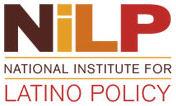
Latino Opinion
Leaders on Obamacare
By Angelo Falcón (October 3, 2013)
At the center of the current federal government shutdown debate is the future of the Affordable Care Act, or Obamacare. While the argument of those lobbying for its repeal or postponement is the significant lack of widespread support for this law by the American people, according to the polls, this is clearly not the case for the Latino community. As the group with the highest number of uninsured, making up 30 percent the Latino population, support for Obamacare is strong among Latinos. A recent national poll found that only 18 percent of Latinos favored repealing or delaying the law.
This NiLP Latino iReport is based on a national web survey of Latino opinion leaders conducted by the National Institute for Latino Policy (NiLP) in May-June. It found that only 16 percent of these leaders thought Obamacare needed to be fully or partially repealed. On the other hand, while 17 percent felt it should be left as is, an overwhelming 62 percent felt that the law needed to be expanded. Those advocating for the law's repeal have very little support in the Latino community, both at the grassroots and leadership levels.

The National Latino Opinion Leaders Survey is conducted from time to time by the National Institute for Latino Policy (NiLP) to measure the policy and political opinions of this influential sector in the Latino community. The current survey was conducted from May 28-June 8, 2013 and is based on 359 respondents. This is not presented as a scientific poll but as a vehicle for promoting discussion on key issues facing the Latino community in teh United States.
Among Latino opinion leaders, the greatest disagreements on Obamacare are ideological. Only 6 percent of Latino opinion leaders identified themselves as conservatives, which is the group most opposed to Obamacare. While all the conservatives in this survey favored repeal all or part of Obamacare, this position had much less support among moderates (23 percent), liberals (12 percent) and progressives (3 percent).

This division is also reflected in party affiliation. While only 6 percent of the Democrats supported repealing all or part of the law, 39 percent of those affiliated with the Republican and other parties did. It should be noted that the Latino opinion leaders in this survey indicated they were overwhelmingly affiliated with the Democratic Party (71 percent).

How these differences among Latino opinion leaders on Obamacare reflect differences in their views on an issue like immigration reform is interesting. Asked what the focus of immigration reform should be, support went overwhelmingly (91 percent) for the path to citizenship, with only 7 percent supporting border security as the focus. While only 11 percent of those supporting a focus on a path to citizenship favored repealing all or part of Obamacare, an overwhelmingly 62 percent of those supporting border security as the focus, supported some form of repeal of the law.

There were also some interesting differences in support for Obamacare among the Latino opinion leaders related to their racial-ethnic views. Among those who viewed Latinos as being primarily a racial group or something other than the established U.S. racial categories, there was no support for repealing the law, with from 75-88 percent supporting its expansion. Among those who see Latinos as being primarily an ethnic or national origin group, 19 percent believed the law should be repealed in its entirety or partially. Only 5 percent saw Latinos primarily as a racial group, 56 percent as an ethnic/national origin group, 33 percent as both, and 5 percent as something else.

Related to this, those Latino opinion leaders whp felt that their community as a group has experienced discrimination were more supportive of Obamacare and its expansion than those who did not think discrimination was a problem. Most all (93 percent) felt that Latinos have experienced discrimination as a group.

Conclusion
Latino support for Obamacare is deep and among Latino opinion leaders any dissatisfaction with the program was overwhelmingly due to the feeling that it did not go far enough. These leaders largely feel that the Obama Administration needs to invest in education and other social program to fix the economy (65 percent) compared to only 14 percent who believe that it needs to shrink government. It is estimated that Obamacare will make over 9 million Latinos eligible for health insurance who currently are uninsured. However, for Latinos, the implementation of Obamacare highlights areas where they are excluded, both by citizenship status and by being in states that are not participating in the Medicaid expansion provisions of the law.
Angelo Falcón is President of the National Institute for Latino Policy (NiLP), He can be reached at afalcon@latinopolicy.org. For further information on NiLP, visit our website at www.latinopolicy.org.
